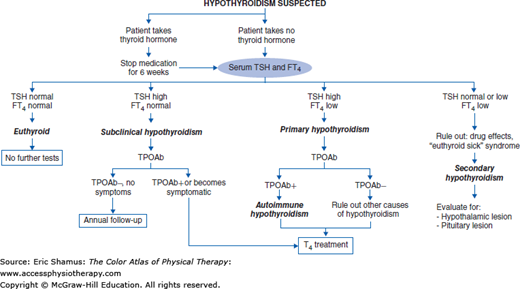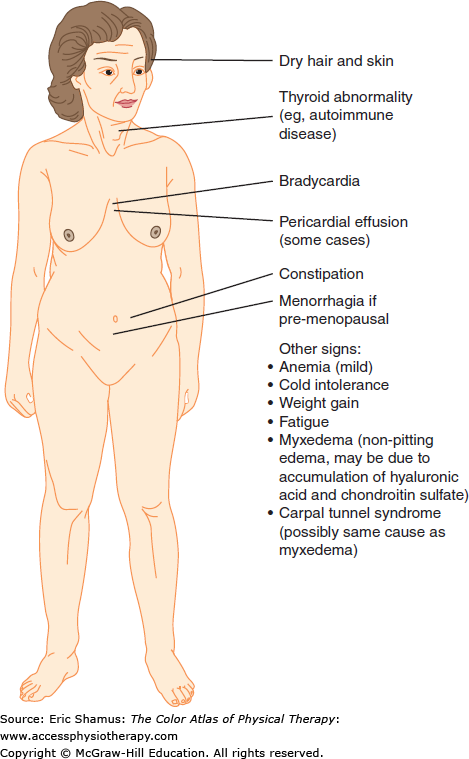Hypothyroidism


Scenario: A 65-year-old female presents to the clinic feeling tired and fatigued all the time. She has also noticed an increasing problem of constipation despite adequate fiber intake. She is frequently cold when others are hot. Her skin has become dry, and she has noticed a swelling sensation in her neck area. On examination she is afebrile with a pulse of 60 beats per minute. She is in no acute distress and appears in good health. She has an enlarged, non-tender thyroid noted on her neck. Her reflexes are diminished, and her skin is dry to the touch.
Question: What are the main organ systems pathologically involved in hypothyroidism, and how are they clinically represented with this patient?
Potential answers:
A. Gastrointestinal: patient has constipation; Cardiovascular: patient is cold all the time; Integumentary: patient has chronic dry skin.
B. Cardiovascular: patient is cold all the time; Psychosocial: Patient feels tired and fatigued constantly; Endocrine: patient has swollen thyroid.
C. Integumentary: patient has chronic dry skin; Neurological: patient has diminished reflexes; Psychosocial: Patient feels tired and fatigued constantly.
D. Gastrointestinal: patient has constipation; Endocrine: patient has swollen thyroid; Neurological: patient has diminished reflexes.
Answer with rationale: A. Gastrointestinal: patient has constipation; cardiovascular: patient is cold all the time; integumentary: patient has chronic dry skin. The gastrointestinal system is often involved with liver problems in hypothyroidism, as well as manifesting as constipation. The cardiovascular system can experience heart disease, angina, or anemia, as well as presenting with feeling cold. The integumentary system can be affected by brittleness in fingernails, dry skin, thinning hair, or thickening of skin.
For more information see Chapter 29: Hypothyroidism in The Color Atlas of Physical therapy

Create a Free MyAccess Profile
AccessMedicine Network is the place to keep up on new releases for the Access products, get short form didactic content, read up on practice impacting highlights, and watch video featuring authors of your favorite books in medicine. Create a MyAccess profile and follow our contributors to stay informed via email updates.
Great! I had a hemithyroidectomy due to cancer. So far, so good. For whatever reason, thyroid cancer is occurring more often in younger women. I am thankful that the endocrinologist who I was sent to after I relocated ordered a thyroid ultrasound. None of my previous physicians ever did. As he told me, "everyone should have at least on thyroid ultrasound." Glad he did! Thanks for sharing!
Thank you for sharing! It is important for Physical Therapists to recognize symptoms beyond the musculoskeletal system as Physical Therapists are front line healthcare practitioners.